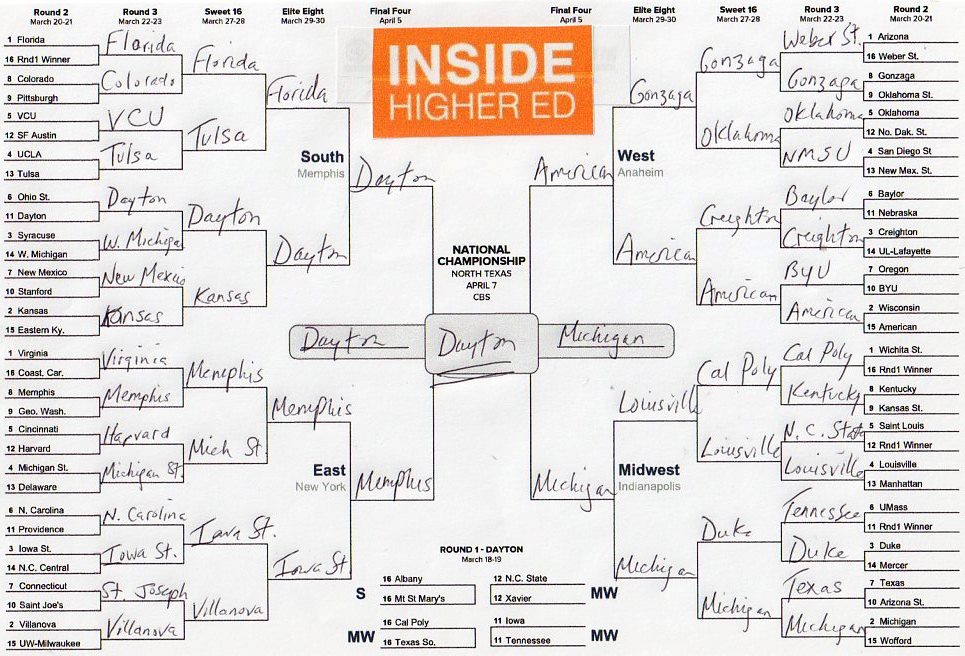Who would win the NCAA tournament if the games were based on academics?
With the college basketball season’s March Madness in full force, Inside Higher Ed asks the important question:
Who would win the NCAA men’s basketball tournament if the games were decided by the teams’ classroom performance?

While the academic tournament has at times been surprisingly accurate in predicting March Madness victors, last year’s tournament threw us for a loop. Academic tournament winner Belmont University was knocked out of the 2013 National Collegiate Athletic Association Division I men’s basketball tournament in the very first round.
So please keep that in mind if you’re inclined to base your bracket in your office pool this year on our findings below. (If you’re filling out a women’s bracket, check back Tuesday to see how women’s teams fared in our academic tournament.)
To determine the winners, we look to the Academic Progress Rate, the NCAA’s multiyear measure of a team’s classroom performance (in this case, from to 2008-12). When two teams tie, as they inevitably do, we turn to the NCAA’s Graduation Success Rate, which measures the proportion of athletes on track to graduate within six years.
In the event of a GSR tie, our final determinant is the Federal Graduation Rate, a slightly different formula that the government uses to track graduation rates.
This year’s Academic Performance Tournament was largely decided in the Sweet 16, where two squads with perfect Academic Progress Rates and Graduation Success Rates — the Universities of Dayton and Kansas — met in the South Region, with the victor decided by the Federal Graduation Rate.
Who would win the NCAA tournament if the games were decided by academic performance? (Inside Higher Ed | News)







Comments
Hillside would win. They actually teach them stuff there.
Dagnabbit! I meant Hillsdale.
Does the formula take into account those players that leave early for the NBA?